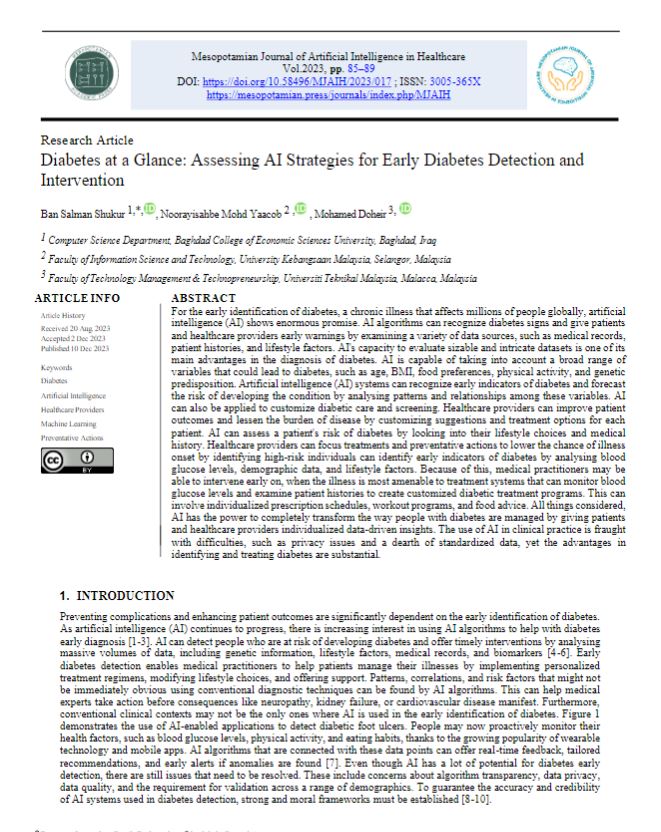Diabetes at a Glance: Assessing AI Strategies for Early Diabetes Detection and Intervention
Main Article Content
Abstract
For the early identification of diabetes, a chronic illness that affects millions of people globally, artificial intelligence (AI) shows enormous promise. AI algorithms can recognize diabetes signs and give patients and healthcare providers early warnings by examining a variety of data sources, such as medical records, patient histories, and lifestyle factors. AI's capacity to evaluate sizable and intricate datasets is one of its main advantages in the diagnosis of diabetes. AI is capable of taking into account a broad range of variables that could lead to diabetes, such as age, BMI, food preferences, physical activity, and genetic predisposition. Artificial intelligence (AI) systems can recognize early indicators of diabetes and forecast the risk of developing the condition by analysing patterns and relationships among these variables. AI can also be applied to customize diabetic care and screening. Healthcare providers can improve patient outcomes and lessen the burden of disease by customizing suggestions and treatment options for each patient. AI can assess a patient's risk of diabetes by looking into their lifestyle choices and medical history. Healthcare providers can focus treatments and preventative actions to lower the chance of illness onset by identifying high-risk individuals can identify early indicators of diabetes by analysing blood glucose levels, demographic data, and lifestyle factors. Because of this, medical practitioners may be able to intervene early on, when the illness is most amenable to treatment systems that can monitor blood glucose levels and examine patient histories to create customized diabetic treatment programs. This can involve individualized prescription schedules, workout programs, and food advice. All things considered, AI has the power to completely transform the way people with diabetes are managed by giving patients and healthcare providers individualized data-driven insights. The use of AI in clinical practice is fraught with difficulties, such as privacy issues and a dearth of standardized data, yet the advantages in identifying and treating diabetes are substantial.
Article Details
Issue
Section

This work is licensed under a Creative Commons Attribution 4.0 International License.
